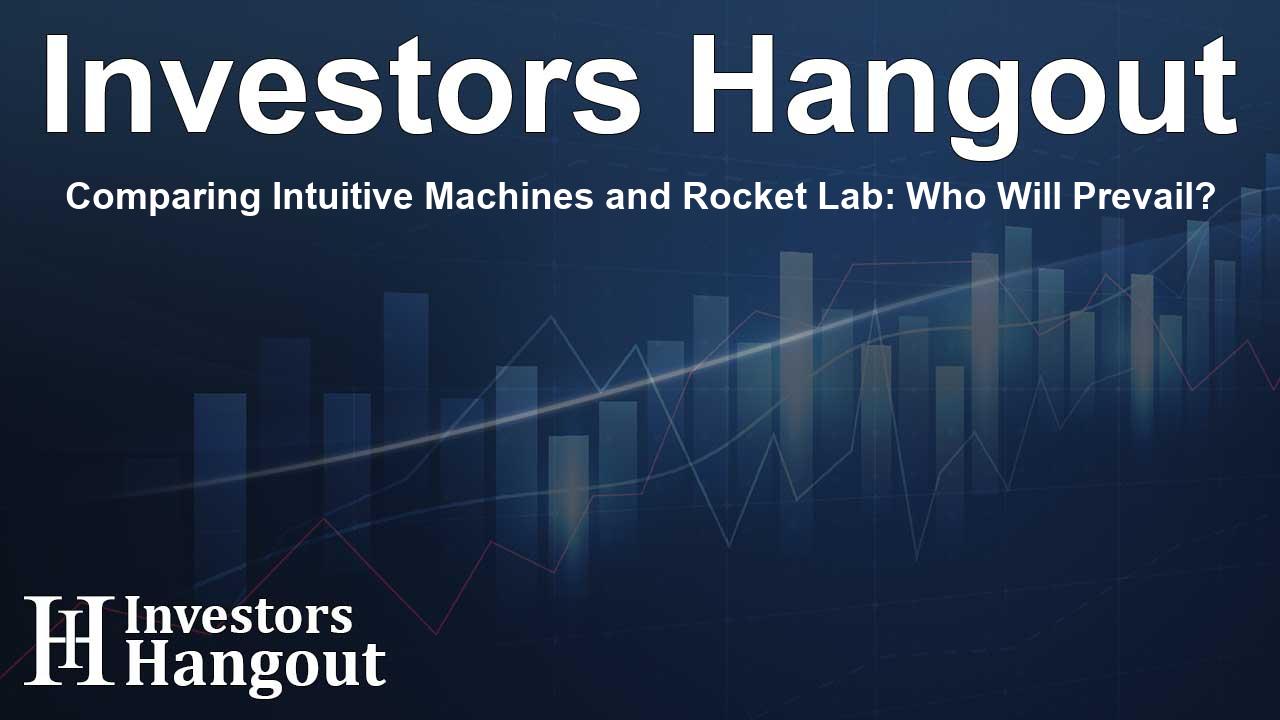Comparing Intuitive Machines and Rocket Lab: Who Will Prevail?

Introduction to Space Industry Competitors
The evolution of space travel has seen numerous advancements since the conclusion of the Apollo program in 1972 and the introduction of NASA’s Space Shuttle program in the early 1980s. For instance, the cost of sending payloads to Low Earth Orbit (LEO) drastically decreased from about $54,500 per kilogram to around $14,000 by the program's end in 2011. Currently, SpaceX's Falcon 9 has set a new standard for cost efficiency, charging approximately $2,720 per kg for payload deliveries to LEO. As the competition intensifies, projections indicate a potential $1 trillion space industry that presents opportunities for many emerging players.
Among these players, Intuitive Machines (NASDAQ: LUNR) and Rocket Lab USA (NASDAQ: RKLB) have become noteworthy competitors in the commercial space sector. In recent times, the stocks of both companies have seen impressive gains, with LUNR up by 535% and RKLB by 350% year-to-date, reflecting their growing prominence in the space industry.
Evaluating Intuitive Machines
Intuitive Machines has been positioned as a critical player in the burgeoning space sector, particularly through its partnerships with NASA. The government has often taken the initiative to fund advancements in space technology due to the associated risks. This trend has ultimately led to opportunities for private-public collaborations.
In a significant move, NASA awarded Intuitive Machines a $4.82 billion contract for the Near Space Net (NSN), enhancing the company’s involvement in lunar exploration. This contract solidifies IM’s role in NASA's Artemis program, aimed at establishing a sustainable lunar presence. Despite challenges, such as a net loss reported for Q3, the company continues to position itself as a key player with substantial prospects.
Current Financial Landscape of Intuitive Machines
In its recent financial reports, Intuitive Machines indicated a net loss of $181.78 million for the first three quarters of 2024. Although this shows a decline compared to the prior year's figures, the company holds a notable cash reserve of $106.9 million and an impressive backlog amounting to $316.2 million, primarily due to its contract with NASA for lunar missions. This growth, at a staggering 359% year-over-year in revenue, reflects the firm's potential despite its current financial struggles.
Exploring Rocket Lab USA
In contrast to Intuitive Machines, Rocket Lab has positioned itself as a competitive alternative to SpaceX, particularly with its Electron rockets, which have proven indispensable for many small satellite launches. Unlike Intuitive Machines, Rocket Lab operates independently and is making strides in securing contracts that extend their reach beyond government partnerships.
Rocket Lab has been consistent in its launch performance, achieving flawless execution in its 2024 launches without any failures. Their upcoming projects, including the Neutron rocket, are set to establish the company’s foothold in mid-sized satellite launching capabilities.
Financial Growth and Future Potential of Rocket Lab
Rocket Lab has showcased considerable financial growth, reporting a 55% increase in revenue, amounting to $105 million. Despite the ongoing R&D investments causing losses amounting to $51.9 million, the company’s prospects remain optimistic, with a growing cash pool of $292.5 million and significant backlogs that total over $1 billion.
Conclusion: Which Company Holds the Advantage?
Both Intuitive Machines and Rocket Lab are carving their respective paths in the space sector. While Intuitive Machines benefits significantly from federal funding and prestigious contracts with NASA, Rocket Lab's ability to independently offer reliable launch solutions makes it a formidable competitor. Investors looking at these two companies should consider their strategic focus and operational model when weighing potential investments.
Frequently Asked Questions
What is the primary focus of Intuitive Machines?
Intuitive Machines primarily focuses on lunar missions and has been selected for several government contracts to support NASA's Artemis program.
How does Rocket Lab differentiate itself in the space industry?
Rocket Lab stands out by providing independent launch services with reliable small satellite solutions, directly competing with major players like SpaceX.
What are the recent financial performances of these companies?
Intuitive Machines reported significant losses but also a remarkable revenue growth year-over-year, while Rocket Lab noted consistent revenue increases and future potential despite current losses.
How important are government contracts for these companies?
Government contracts play a crucial role for both companies, providing stable funding and opportunities for growth in the commercial space sector.
What are the future prospects for Intuitive Machines and Rocket Lab?
The future for both companies looks promising, with multiple upcoming launches and contracts expected to enhance their positions in the evolving landscape of the space industry.
About Investors Hangout
Investors Hangout is a leading online stock forum for financial discussion and learning, offering a wide range of free tools and resources. It draws in traders of all levels, who exchange market knowledge, investigate trading tactics, and keep an eye on industry developments in real time. Featuring financial articles, stock message boards, quotes, charts, company profiles, and live news updates. Through cooperative learning and a wealth of informational resources, it helps users from novices creating their first portfolios to experts honing their techniques. Join Investors Hangout today: https://investorshangout.com/
Disclaimer: The content of this article is solely for general informational purposes only; it does not represent legal, financial, or investment advice. Investors Hangout does not offer financial advice; the author is not a licensed financial advisor. Consult a qualified advisor before making any financial or investment decisions based on this article. The author's interpretation of publicly available data shapes the opinions presented here; as a result, they should not be taken as advice to purchase, sell, or hold any securities mentioned or any other investments. The author does not guarantee the accuracy, completeness, or timeliness of any material, providing it "as is." Information and market conditions may change; past performance is not indicative of future outcomes. If any of the material offered here is inaccurate, please contact us for corrections.